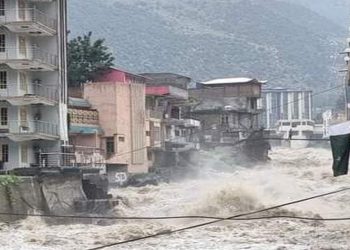NEW YORK (Reuters): Pfizer Inc (PFE.N) has planned to ask US regulators to authorize a booster dose of its COVID-19 vaccine within the next month based on evidence of greater risk of reinfection six months after inoculation and the spread of the highly contagious Delta variant.
The US Food and Drug Administration (FDA) and the Centers for Disease Control and Prevention (CDC) said, however, in a joint statement that Americans who have been fully vaccinated do not need a booster COVID-19 shot at this time.
Some scientists have also questioned the need for booster shots. Pfizer’s chief scientific officer, Mikael Dolsten, said the recently reported dip in the vaccine’s effectiveness in Israel was mostly due to infections in people who had been vaccinated in January or February.
The country’s health ministry said vaccine effectiveness in preventing both infection and symptomatic disease fell to 64 percent in June. “The Pfizer vaccine is highly active against the Delta variant,” Dolsten said in an interview. But after six months, he said, “they’re likely is the risk of reinfection as antibodies, as predicted, wane.”
Read more: Pakistan to receive 13mn doses of Pfizer vaccine: SAPM
Pfizer did not release the full set of Israeli data but said it would be published soon. “It’s a small data set, but I think the trend is accurate: Six months out, given that Delta is the most contagious variant we have seen, it can cause infections and mild disease,” Dolsten said.
The FDA and CDC, in their joint statement, said: “We are prepared for booster doses if and when the science demonstrates that they are needed.” Pfizer’s own data from the United States showed an erosion of the vaccine’s efficacy to the mid-80s after six months, Dolsten said, against the variants circulating there in the spring.
He stressed that data from Israel and Britain suggests that even with waning antibody levels, the vaccine remains around 95 percent effective against severe disease. The vaccine, developed with German partner BioNTech SE, showed 95 percent efficacy in preventing symptomatic COVID-19 in a clinical trial the companies ran last year.
Dolsten said early data from the company’s own studies shows that a third booster dose generates antibody levels that are five-to-10-fold higher than after the second dose, suggesting that a third dose will offer promising protection.
He said multiple countries in Europe and elsewhere have already approached Pfizer to discuss booster doses, and some may begin administering them before a potential US authorization.
Pfizer has previously said people will likely need a booster dose, though some scientists have questioned when, or whether, boosters will be needed. Pfizer plans to launch soon a placebo-controlled efficacy trial of the booster with 10,000 participants. The study will run throughout the fall, Dolsten said, meaning it will not be completed ahead of the company’s filing with the Food and Drug Administration.

































